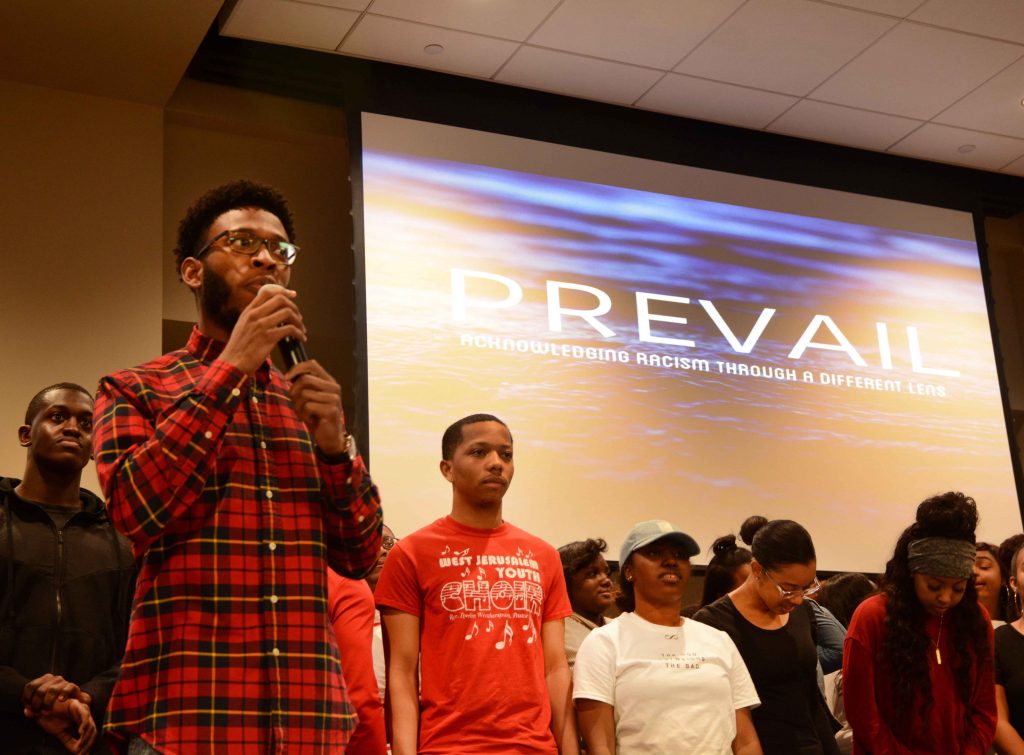Arthur Alter, patriarch of the Alter family, stopped to examine dandelions blooming through his driveway. It was his first trip home in weeks, and readers should forgive him, “considering the undisturbed calm of the private place, for losing world-historical perspective while within its bounds, for devoting (him)self entirely to intimate ruptures, bubbles and tears in the asphalt.”

This nearsightedness is one of the defining traits of Arthur Alter, the protagonist of “The Altruists.” The book is the debut novel of current Iowa Arts Fellow in the Iowa Writers’ Workshop Andrew Ridker. “The Altruists” finds itself on anticipatory 2019 book lists by such publications as Southern Living and The Millions and asks readers to bestow upon its characters the generosity that is implied by its title.
Generosity may be all that gets readers past the novel’s first three chapters, but once this hurdle is cleared, the indulgence will be repaid tenfold in tender and intimate glimpses into the struggling heart of an unhappy family.
Ridker’s debut reads like an illness trajectory of a grief-stricken family. Following the death of their competent and beloved matriarch, Francine, husband Arthur and adult children Maggie and Ethan spiral.
Arthur, an untenured professor with a nearly blank publication history and one catastrophic failure under his belt, drives his children away with his self-absorption and absent-mindedness. Do-gooder Maggie slowly starves as she attempts to funnel her grief into world-improvement. Ethan squanders the inheritance left to him by his late mother, plunging himself into debt with tasteful wall hangings and monthly cheese subscriptions.
In its early chapters, the novel’s clashing uses of humor and earnestness in its descriptions of these symptoms are often discordant, falling flat in their attempts at garnering pity for privileged and self-righteous characters.
However, with the introduction of Arthur — a narcissistic male protagonist in the tradition of Jonathan Franzen who is no less sympathetic for his conformance to a trope or his grating egomania — “The Altruists” becomes stunningly intricate and touching, peeling back the layers of each of the three main characters to reveal the pathology of their personalities.
All three of the surviving Alters are traumatized — Arthur by the great failure of his youth, Ethan by social and familial rejection and Maggie by her inability to reconcile the comfort of middle-class life with her desire to help the underprivileged. Their traumas surface with Francine’s death.
Ridker’s meticulous reopening of the Alters’ wounds at once exposes the contrived behaviors of the Alters as coping mechanisms indicative of the depth of grief each of the family members experiences and reveals the characters’ absurdities as the contradictions of consumer culture and self-actualization in 21st century America.
This allegory at times jumps tactlessly out from behind the intricately woven curtain of the novel’s emotional world, but even this occasional lack of subtlety — a trait deserving of leniency in any first novel — is charming in its sincerity.
Ultimately, “The Altruists” is a tender and evocative, if occasionally obvious, call for universal generosity in a time of change, grief and nationwide emotional tension. It is a reminder that “Where civilization does not exist, you must invent it” and an invitation to join the Alters in “feeling their way toward a new arrangement.”
“The Altruists,” published by Viking, hits shelves next Tuesday, March 5.
















